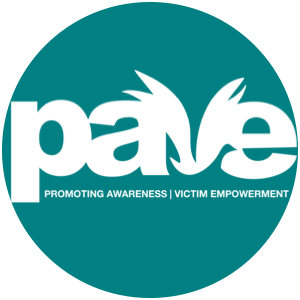Honoring BIPOC Mental Health Month
Image from Dallas College Student Blog
July is BIPOC (Black, Indigenous People of Color) Mental Health Month. BIPOC communities face unique struggles due to centuries-old systemic oppression and barriers; this month highlights those experiences.
Bebe Moore Campbell, founder of BIPOC Mental Health Month
Racism in the US is systemic - embedded deeply into every system, including healthcare and support. The world of mental healthcare was not built to support the unique needs and experiences of BIPOC communities. BIPOC Mental Health Month works to raise awareness and provide tools for BIPOC, where the system has otherwise left gaps.
BIPOC Mental Health Month was created by Bebe Moore Campbell in 2008. Moore Campbell was an American author, journalist, teacher and mental health advocate who spent her career working to raise awareness on the mental health issues in marginalized communities.
Mental Health America (MHA) honors Moore Campbell and her work every July with the creation of BIPOC Mental Health Month. Each year, MHA creates a unique toolkit for BIPOC and allies on how we can better support each other.
In 2021, MHA’s toolkit focuses on “Strength in Communities” and provides alternative mental health supports created by BIPOC and QTBIPOC (Queer and Trans BIPOC) for BIPOC/QTBIBOC. This toolkit “examines community-developed systems of support created to fill in gaps within traditional systems that may overlook cultural and historical factors that impede BIPOC and QTBIPOC mental health.” (MHA)
The 2021 toolkit focuses on community care, self-directed care and cultural care. All information below is from the MHA 2021 BIPOC MHM Toolkit.
Community Care
Community care is based on the collectivist belief that the wellbeing of one is directly tied to the wellbeing of their community. This focuses on the connection with others, intentional actions and supporting one another. It also includes the inequities that come with systemic barriers, such as social determinants of health.
The toolkit notes, “community care is also critical to an individual’s mental health as it responds to the isolating factors often experienced by individuals who may feel disconnected to their community due to life circumstances, the impacts of racism, marginalization, violence, trauma, and other societal factors.”
Self-Directed Care
Self-directed care (SDC) gives power back to the person who is struggling. It gives them control over their own needs, wellbeing, and decision to receive help. Individuals are encouraged to take responsibility over their own journey to recovery.
The toolkit explains SDC in saying, “because SDC gives the individual seeking services the power to decide what works best for them, it allows people from marginalized communities to determine their own priorities in recovery and move beyond traditional systems of care, which weren’t originally designed with them in mind.”
Ways we can implement SDC include knowing what will/not work for you, shared decision making with your health care provider, and advocating for yourself.
Cultural Care
Cultural care relies on cultural roots, behaviors, values, customs and beliefs that are passed down generationally. The toolkit writes that these are “informal systems of support” and help provide a framework for BIPOC care. Cultural care also works to rewrite generational trauma due to cultural oppression and erasure.
“By learning about and embracing culturally-based practices, individuals and communities can begin the process of understanding the impacts of historical trauma, reclaiming the honor and pride of their ancestors, their historical knowledge, and the power that exists in connecting with one’s community through shared values, beliefs, and customs,” notes the toolkit.
Resources for BIPOC
This month and every month, PAVE is here to support you. We support and are inclusive of all races, classes, religions, genders, sexualities and experiences- we are here to help you find hope, heal and recover. You are not alone.
To dive deeper into this year’s toolkit, you can download it for free here.
Resources from Massachusetts General Hospital:
Survivors.org: A comprehensive, virtual database of resources to connect survivors across the country to the support they need.
Inclusive Therapists: Virtual directory of culturally competent and social justice-oriented therapists; includes list of therapists currently offering reduced-fee teletherapy
Asian, Pacific Islander, and South Asian American (APISAA) Therapist Directory: Virtual directory of APISAA mental health providers
Latinx Therapy: Virtual directory of mental health providers for Latinx community
QTPoC Mental Health Practitioner Directory: Virtual directory of mental health practitioners across the country for queer and trans people of color, provided by the National Queer and Trans Therapists of Color Network
Black Mental Health Alliance: Virtual directory of culturally-competent and patient-centered licensed mental health professionals
Therapy for Black Girls: Online space founded by Dr. Joy Bradford dedicated to encouraging the mental wellness of Black women and girls, including a free podcast aimed at making mental health topics accessible
About the Author
Hi, I’m Bella Mutert, a social media and marketing intern at PAVE. I am a senior at DePaul University studying Communications, Media, PR & Advertising. As a survivor myself, I am thrilled to be interning at PAVE and making a difference in other survivors’ lives. I am passionate about sharing holistic healing tools with survivors and raising awareness about the intersection of sexual violence and mental health issues/ substance use disorder. Thanks for reading!



